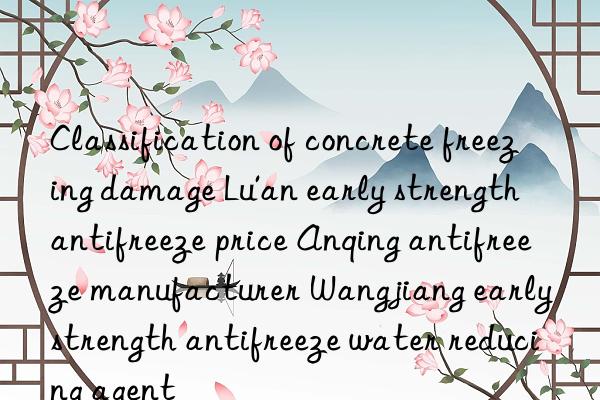
During the construction process of winter concrete projects, concrete freezing can be divided into the following three types according to different stages.
1. Freezing of concrete
Freezing of fresh concrete refers to newly poured concrete before final setting The main reason why it was frozen was that the air temperature and concrete temperature were very low, and the construction measures were improper. Generally speaking, this kind of freezing will not cause deterioration of concrete. As long as it is vibrated and compacted immediately after thawing and before final setting, and the maintenance is strengthened and the concrete is not frozen again, the performance of the concrete will not be damaged. This situation is generally encountered in the construction of thin-walled structures, thin plates, and road surface layers.
2. Early freezing of concrete (also known as early freezing of concrete or early age freezing) Early freezing of concrete refers to the damage caused by concrete during the curing and hardening period after it is poured. Freezing can damage a range of properties of concrete. This is often encountered in concrete winter construction and is a very noteworthy problem. This kind of freezing damage is mainly caused by improper selection of construction methods, low technical level or irresponsibility of construction personnel. It can reduce a series of physical and mechanical properties of concrete, making it unable to meet the design strength requirements, affecting engineering applications, reducing durability, and even causing rework.
The main indicators for evaluating early frost damage to concrete are compressive strength, tensile strength, and bonding strength between concrete and steel bars. The test method is to use various freezing temperatures to freeze and thaw hardening concrete at different stages one or more times, and then conduct it in accordance with the "Standard Test Method for Ordinary Concrete". It comprehensively reflects the level of concrete raw materials, mix proportions, and curing conditions. One of the important indicators for evaluating the early freezing damage of concrete is the early allowable freezing critical strength value.
3. Frost damage of concrete (also known as concrete’s anti-freeze durability) Frost damage of concrete means that hardened concrete is affected by the natural temperatures of cold and heat during the use of the engineering structure, and suffers from the freezing and thawing effects of natural temperatures for many years. , resulting in the gradual degradation of various performances.
The main indicator for evaluating concrete frost damage is the loss of compressive strength or dynamic elastic modulus. Take a concrete specimen that has been hardened for 28 days under standard conditions, and measure the compressive strength or dynamic elastic modulus loss value after multiple freezing and thawing according to the standard test method for concrete frost resistance durability as an evaluation index. It reflects the level of materials and mix proportions, is used to assess the durability and service life of the structure, and serves the design.

 微信扫一扫打赏
微信扫一扫打赏

